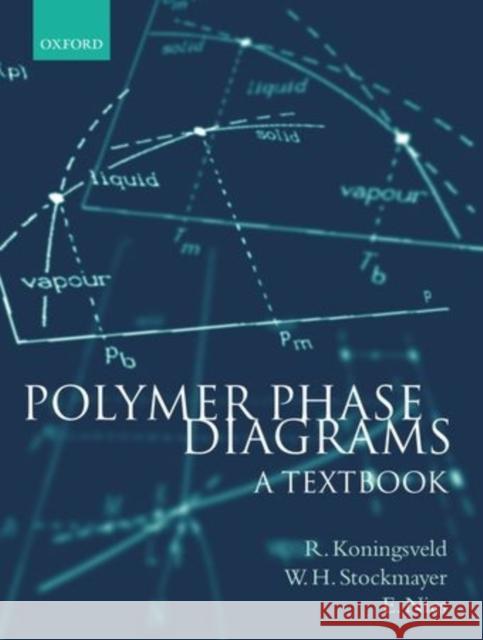Polymer Phase Diagrams: A Textbook » książka
Polymer Phase Diagrams: A Textbook
ISBN-13: 9780198556343 / Angielski / Miękka / 2001 / 360 str.
Polymeric materials include plastics, gels, synthetic fibres, and rubbers. They are all-important both in industry and in daily life. Unlike liquid water, ice, or sugar solution, polymers are not homogeneous. They are said to consist of two or more phases, and their production and processing, as well as their properties and uses, depend on an understanding of the transitions that take place between these phases. Over the last two decades, phase diagrams of considerably complexity have begun to appear in the polymer literature. Phase transitions occur abundantly in polymer production and processing, are often encountered in polymer research, or are instrumental in laboratory methods of polymer characterization. This new textbook uses fundamental principles to classify phase separation phenomena in polymer systems, and describes simple molecular models explaining the observed behavior. It supplies insight in the reading and construction of complex phase diagrams, as well as an understanding of the relationships that must exist between different phase transitions. Containing hundreds of diagrams, exercises at chapter ends, and several useful appendices, this text should be useful for anyone teaching or studying a course in polymer science.











